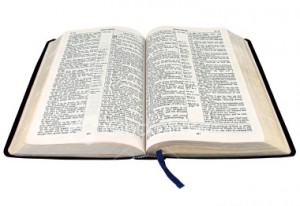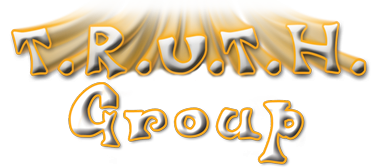- Home
- T.R.U.T.H. About?
- The Past (Beginning)
- Dinosaurs
- The Present (Middle)
- Biblical Calendar
- Sabbath Resurrection
- Scoffers, Sleepers, Errors & Watchers
- The Future (End)
- Feast of Trumpets
- Articles
- History and Archaeology
- Genealogy From Adam to Noah
- Nuggets of TRUTH
- The Center of the Bible
- Gospel Design
- Unwashed Hands
- Simple Truths
- Store
- Contact
How to Define Words in Scripture?
How to Define Words in Scripture?
 2Ti 2:14 “Of these things put [them] in remembrance, charging [them] before the Lord that they strive not about words to no profit, [but] to the subverting of the hearers.”
2Ti 2:14 “Of these things put [them] in remembrance, charging [them] before the Lord that they strive not about words to no profit, [but] to the subverting of the hearers.”
God has instructed us not to stumble over the definitions of words. As Christians, we should know the meanings of words to the extent that this topic is a non-issue. So, we must start from the beginning. There are wrong ways to find definitions of words in the Bible, and there are right ways to find the definitions of words in the Bible.
Referring to Greek and Hebrew lexicons can be a useful way to learn the definitions of words in the Bible. However, referring to said languages for this reason should be done as sparingly as possible (preferably never). And I know to many people this might sound strange, but let me explain:
The English language has gone through some very drastic changes over the last 400 years.
Here are some examples:
-“Let” used to also mean “hinder” (it is used this way in Rom 1:13).
-“Convince” used to mean “Convict” (used this way in 1 Cor 4:24).
-“Unicorn” used to mean “Rhinoceros” (used in Job 39:10 and others). Here’s more on the unicorn topic http://www.youtube.com/watch?
-“Replenish” used to mean “fill,” as opposed to “refill” which is its modern definition. (used this way in Gen 1:28)
-“Terrible” used to mean “mighty/strong/large” (used this way in Neh 1:5)
And there are many, many more examples of just how the English language has changed over the last 400 years.
Now, one of satan’s strategies to distort and corrupt the word of God throughout history has been to attack the very languages in which it is written . However he cannot corrupt the word of God because once the Bible has been corrupted it ceases to be the word of God (the result is translations like the NIV, NWT, NAS, etc.). But, God won’t allow that wicked one to ruin the scripture completely. The King James Bible is God’s pure and preserved word in English, and since the devil cannot harm it, he has resorted to attacking the language it is written in.
If you read the right Bible but use the modern definitions of the words, you won’t read for very long before you come across some serious problems, and if this is the case for the English that is only 400 years old, how much more corrupt has the 2,000 year old Greek, or the 4,000 year old Hebrew become? We have enough obstacles to overcome as it is with the very language we speak. How many more obstacles are there for us in the languages which we have never known? Even if you do speak Greek or Hebrew, the devil has had five and ten times as much time to change and pollute said languages.
I find the Strong’s Concordance to be a problematic approach as well, for I know nothing about translating from language to language as the translators commissioned by King James devoted their entire lives to this very scholarship. They translated the Bible in the way they did for a reason, and I am in no position to say that one word should have been translated into another as many people do.
Older dictionaries can be useful (like a 1611 dictionary or an 1800’s dictionary), but even those should be used as sparingly as possible because, again, satan has corrupted the English language.
Now, this is the method we, as the children of light, should use to define Biblical words: Let the Bible define its own words. Although many important words have changed in meaning over the centuries, most modern English words still have the same definition as they did in 1611, so this is a sufficiently effective for the words that have changed in meaning over the centuries. Remember, God tells us that the topic of word definitions should not be a point of contention. It is an easy obstacle to overcome.
Here are some examples of how the holy scripture defines its own words:
1) Words are sometimes paired with their antonyms in the same verse.
EXAMPLE:
Lev 10:10 “And that ye may put difference between holy and unholy, and between unclean and clean;”
“Holy” means “clean” (however, if you use method # 3 below to define the word “holy” you’ll find that it also means “set apart,” so “holy” means “clean and separate”).
2) Words are often paired with their synonyms in the same verse.
EXAMPLE:
Jer 18:8 “If that nation, against whom I have pronounced, turn from their evil, I will repent of the evil that I thought to do unto them.”
Jer 26:3 If so be they will hearken, and turn every man from his evil way, that I may repent me of the evil, which I purpose to do unto them because of the evil of their doings.
“Repent” in English means to “turn.”
3) New testament references to the old testament will sometimes have a key word replaced with its synonym.
EXAMPLE:
Act 7:38 “This is he, that was in the church in the wilderness with the angel which spake to him in the mount Sina, and [with] our fathers: who received the lively oracles to give unto us:”
Exd 16:1 “And they took their journey from Elim, and all the congregation of the children of Israel came unto the wilderness of Sin, which [is] between Elim and Sinai, on the fifteenth day of the second month after their departing out of the land of Egypt.”
So “church” means “congregation.”
4) The same phrasing of certain passages sometimes appears with the word of interest replaced with it’s synonym (This is one of the most powerful ways to define words).
EXAMPLE:
Mat 7:28 “And it came to pass, when Jesus had ended these sayings, the people were astonished at his doctrine:”
Luke 2:47 “And all that heard him were astonished at his understanding and answers.”
You’ll find that this method combined with the other methods shows that “doctrine” means “scriptural understanding.”
5) Words that appear only once in the scripture can be defined in this way:
Act 15:26 “Men that have hazarded their lives for the name of our Lord Jesus Christ.” (This is the only place in the scripture where this word appears.)
This method takes the longest because there is no shortcut. You just have to read until you find another description of the subject. To understand what it means to hazard ones life, you’ll need to find a description of Paul’s life. Here is one:
2Cr 11:23-27 “Are they ministers of Christ? (I speak as a fool) I [am] more; in labours more abundant, in stripes above measure, in prisons more frequent, in deaths oft. Of the Jews five times received I forty [stripes] save one. Thrice was I beaten with rods, once was I stoned, thrice I suffered shipwreck, a night and a day I have been in the deep; [In] journeyings often, [in] perils of waters, [in] perils of robbers, [in] perils by [mine own] countrymen, [in] perils by the heathen, [in] perils in the city, [in] perils in the wilderness, [in] perils in the sea, [in] perils among false brethren; In weariness and painfulness, in watchings often, in hunger and thirst, in fastings often, in cold and nakedness.”
So, to hazard one’s life probably has a similar meaning to the modern recognized definition.
I have yet to find a word in the scripture which a combination of these methods cannot define. After all God said that you have no need that any man teach you (1 John 2:27). All you need is his pure and preserved word and a willingness to search out the matter.

